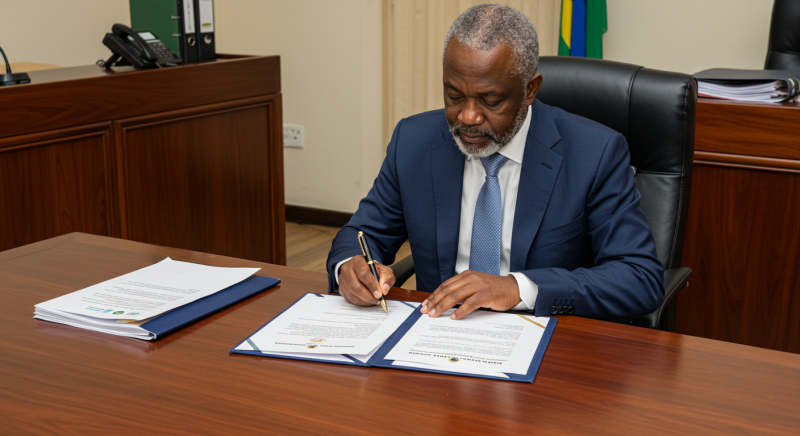A Crisis in the Classroom
“Africa needs 15 million more teachers by 2030 to meet education goals—yet millions of children sit in overcrowded classrooms with no qualified instructors.”
The teacher shortage in Africa is a ticking time bomb. With surging student enrollment and inadequate recruitment, schools struggle to maintain quality education. UNESCO reports that sub-Saharan Africa alone requires 6.3 million new teachers for primary education and 8.7 million for secondary schools by 2030 .
Key Takeaways:
✅ 15 million teachers needed in Africa by 2030
✅ Nigeria alone has a 200,000-teacher deficit, worsening rural education
✅ Low pay, poor conditions, and migration drive teachers away
✅ Solutions include better funding, incentives, and policy reforms
The Root Causes of Africa’s Teacher Shortage
1. Surging Student Enrollment vs. Stagnant Teacher Recruitment
Africa’s population boom has led to overcrowded classrooms, with some schools hosting 100+ students per teacher—far above UNESCO’s recommended 40:1 ratio 1. Countries like Niger, Chad, and Mali need 6% annual teacher growth just to keep up .
2. Low Salaries and Poor Working Conditions
Many African teachers earn below living wages, pushing them to seek jobs abroad. In Nigeria, 30% of teachers left the profession in three years, citing poor pay and lack of support .
“Teachers in Nigeria cannot compete with bankers. The UK recruits our best educators with better salaries.” — Isaiah Ogundele, Nigerian educator
3. Mass Migration of Teachers to Wealthier Nations
The UK, Australia, and Canada actively recruit African teachers. In 2023 alone:
- 2,300 Ghanaian teachers moved to the UK
- 655 Nigerian teachers were hired under the Qualified Teacher Status (QTS) scheme
- 100 Fijian educators left for Australia in one year
This “brain drain” leaves African schools understaffed.
4. Inadequate Training and Unqualified Teachers
Many African teachers lack proper certification. In sub-Saharan Africa, only 65% of primary teachers meet minimum qualifications—down from 84% in 2000 . Contract teachers (hired temporarily) often receive little training, affecting education quality .
The Devastating Impact of Teacher Shortages
1. Declining Learning Outcomes
- 58 students per trained teacher in primary schools
- “Learning poverty”—children can’t read or do basic math by age 10
2. Rural vs. Urban Education Inequality
Rural schools suffer the most, with single teachers handling multiple grades. Girls’ education is hit hardest, as female teachers (only 30% in secondary schools) help retain girls in class .
3. Economic Consequences
- Poor education → low-skilled workforce → economic stagnation
- Nigeria loses billions due to uneducated youth joining crime or insurgency
Solutions: How Africa Can Fix Its Teacher Shortage
1. Increase Teacher Recruitment & Training
- Nigeria plans to hire 74,000 teachers (2,000 per state)
- Lagos, Kwara, and Ondo have launched STEM teacher recruitment drives
- Funza Lushaka Bursary Programme (South Africa) funds teacher training in exchange for service

2. Better Pay & Incentives
- Singapore pays teachers 50% more than other professionals—a model Africa should adopt
- Housing, health insurance, and pensions can retain educators
3. Stop Exploitative Teacher Migration
- Commonwealth Protocol for Teacher Recruitment should prevent wealthy nations from poaching African teachers
- Improve local salaries to reduce the appeal of overseas jobs
4. Leverage Technology & Distance Learning
- Online teacher training programs can upskill educators in remote areas
- Digital classrooms can supplement teaching in understaffed schools
5. Government Accountability & Funding
- Nigeria allocates only 6-7% of its budget to education (UNESCO recommends 20%)
- States must access UBEC funds (N264 billion unclaimed in 2024)
FAQ: Quick Answers on Africa’s Teacher Shortage
❓ How many teachers does Africa need?
➡ 15 million by 2030 (6.3M primary, 8.7M secondary)
❓ Why are teachers leaving Africa?
➡ Low pay, poor conditions, and better opportunities abroad
❓ Which African country has the worst teacher shortage?
➡ Nigeria (200,000 deficit), followed by Central African Republic & Chad
❓ Can technology solve the teacher shortage?
➡ Partially—online learning helps, but trained teachers are irreplaceable
Conclusion: A Call to Action
Africa’s teacher shortage is solvable—but governments, communities, and global partners must act now. Key steps include:
✔ Massive teacher recruitment & training
✔ Better salaries and working conditions
✔ Stopping exploitative foreign recruitment
✔ Increasing education budgets
“Education is the foundation of any prosperous nation. If we fail our teachers, we fail our future.” — Atinuke Adeosun
Final Note: The teacher shortage is not just an education crisis—it’s a national security and economic emergency. By investing in teachers, Africa invests in its future.
What steps should your country take first? Share your thoughts in the comments!
